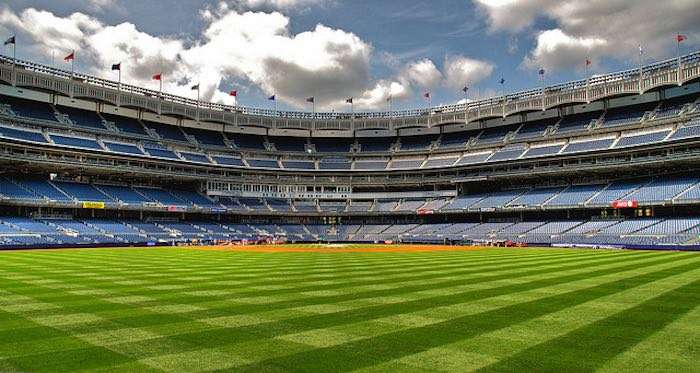Meet the "Bob Marley of Tennis" Who Just Beat a 14-Time Champ at Wimbledon
With signature dreadlocks he hasn't cut in 19 years, underdog Dustin Brown just stunned the tennis world by knocking out the 10th ranked player in the world at Wimbledon.

A burgeoning movement to make sports more sustainable has signed up almost 300 professional and collegiate teams committed to playing ball with the environment.
The Green Sports Alliance works with venues, too, from 20 leagues in 14 countries to reduce waste, conserve energy and water, and eliminate toxic chemicals from their daily cleaning routines. Since 2011, the Alliance has helped members integrate sustainability into their core operations– and save substantial sums of money in the process.
Last week, at the group's annual summit, more than 700 stakeholders across the NHL, NFL, NBA, MLB, MLS and NCAA discussed the latest strategies around greening the sports industry.
At the summit, the organization released its Greener Cleaning Playbook, which offers sports facilities more natural and cost-effective strategies for keeping their facilities–and the people in them–safer.
The playbook offers methods to reduce the use of cleaning products, water, and energy, and includes recommendations for "greener" products and high-efficiency cleaning equipment.
"Our goal is to improve the health and environmental sustainability of the places where we play sports," said Stephen Ashkin, executive director of the Green Cleaning Network and author of the Playbook. "We heard from our members that they want to pursue greener cleaning but found the process daunting because of the variety of products, equipment and processes that are used. This Playbook provides a one-stop resource."
A number of venues are already putting the plays into effect, like the Seattle Seahawks' CenturyLink Field, which has reduced the amount of chemicals needed to clean the stadium by more than 61,000 gallons. In L.A., Dodger Stadium converted from plastic can liners to liners made from 100 percent post-consumer recycled resin and successfully removed roughly 60,000 pounds of plastic from its waste stream annually. The Eagle has also landed at Lincoln Financial Field in Philadelphia, where the stadium has replaced most of its traditional cleaning chemicals with devices that electrically convert tap water into an effective cleaning solution.
The summit also featured symposiums honoring the fifth anniversary of NHL Green, the league's comprehensive environmental sustainability initiative.
Click here to read the playbook, or here to keep up with the Alliance on Facebook.
Hit A Home Run With Your Friends By Sharing Below:
Be the first to comment